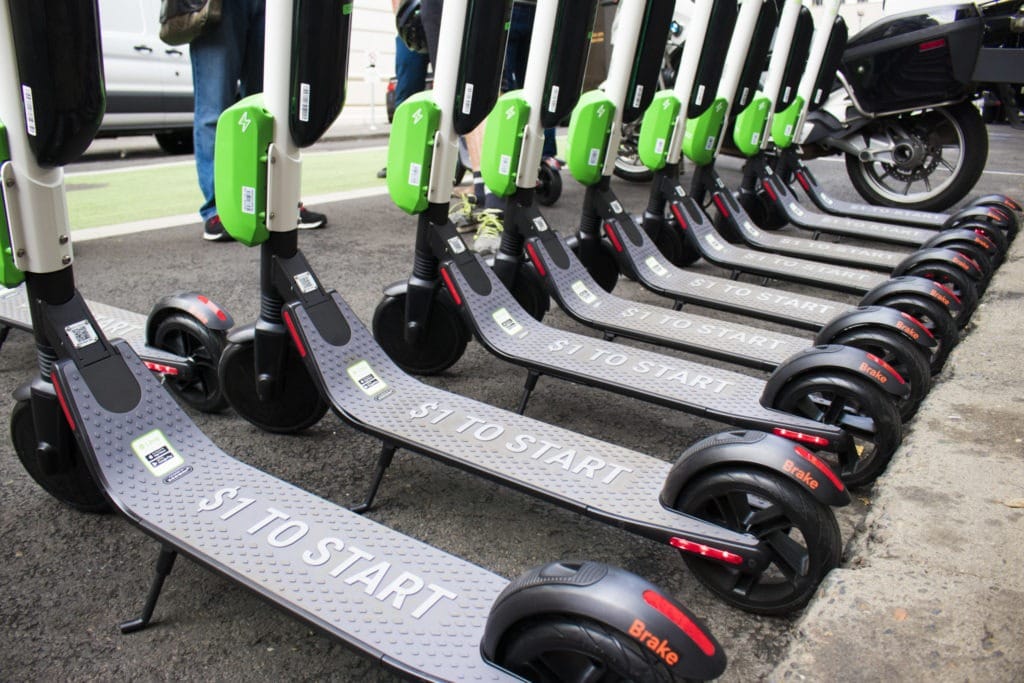Shared electric scooter schemes are less environmentally friendly than originally advertised by operating companies, with a new study showing that an e-scooter trip is generally more polluting than one by electric moped or bike or even in a standard diesel-powered bus.
The study, published by researchers at North Caroline State University, counters the widely circulated assertion that a lack of exhaust pipe on the electric two-wheelers make them a greener transportation alternative.
Researches were prompted to conduct the study after one found a sticker on a Lime scooter that read: "Your ride was carbon-free."
After an analysis of their life-cycle — which looked into the manufacturing, transportation, maintenance and disposal processes they require—the study found that a one mile (1.6 kilometres) trip on an e-scooter generally emitted more greenhouse gases than one using alternative means of transport.
"The dockless scooters generally produce more greenhouse-gas emissions per passenger mile than a standard diesel bus with high ridership, an electric moped, an electric bicycle, a bicycle—or, of course, a walk," a report of the study in MIT Technology Review said.
Half of the reasons behind the e-scooters' newfound carbon footprint comes from their resource-intensive sourcing and manufacturing processes, a problem that is exacerbated by the fact that the actual lifespan of the e-scooters is relatively short once they hit the streets.
Several incidents in cities worldwide see the units flung into rivers and canals, damaged or even stolen.
The need to constantly gather and recharge the scooters accounts for the second-largest share of their emissions, or 43%, according to the report in MIT Tech Review.
Ultimately, "roughly two-thirds of the time, scooter rides generate more greenhouse-gas emissions than the alternative," one of the study's authors, cited in the outlet, concludes, adding that the increased emissions produced by users of the schemes were "greater than the gains from the car rides not taken."
The arrival of the mobility scheme in Belgium has known great success, with almost 5,000 e-scooters in the city of Brussels alone, and additional fleets arriving in other cities in the country.
Ways to cut back e-scooter emissions include using greener vehicles to collect and recharge scooters, reducing the distances between collecting and gathering points, and using more recycled materials for the production of the scooters, such as aluminium, the study concludes.
Gabriela Galindo
The Brussels Times

